- Home
- Jack Higgins
Solo (Aka the Cretan Lover) (v5) Page 9
Solo (Aka the Cretan Lover) (v5) Read online
Page 9
'And the Cretan turned up?'
'After dark and wearing that damned hood of his.'
Morgan examined the file again. 'According to this, Klein emerged from a reception at the Director's home just after ten. The Cretan got him from three hundred yards using an image intensifier. One hell of a shot.'
'Then cleared off. The girl was caught trying to dispose of the gun. Most of the details emerged during her interrogation. Seems he'd given her what he gave the maid at the Hilton in Berlin and she was another who didn't seem to mind. She was sprung from a prison van en route to gaol by a combat squad of the Red Army Faction.'
'And totally disappeared?'
'Until she was arrested in London in February of this year working in a boutique. Claimed she'd married a gentleman called Harry Fowler, a waiter from Camden Town, only he can't be found. It would, of course, have made her a British citizen. The Germans want her back, both East and West variety. Naturally, the civil liberty groups here want her kept. She's at a special remand centre at Tangmere, near Cambridge. A source of considerable embarrassment to the Government.'
'I can imagine.' Morgan read on in silence for a moment. 'This psychologist's report on the girl is really quite excellent. Who did it?'
'A woman called Riley. Dr Katherine Riley. An American. She's a fellow at one of the Cambridge colleges. She's been allowed to visit the Hoffman girl regularly.'
'Why?'
'It's her field, terrorism. She's interviewed nearly every well-known European terrorist in prison, when they've allowed her to. Wrote a book about it eighteen months ago called The Terrorist Phenomenon.'
'I remember now,' Morgan said. 'I read it.' He reached for a cigarette. 'By my reckoning, our friend has knocked off around a dozen very important people in just under three years. That's quite a score.'
'And he doesn't take sides.' Baker said. 'The Cretan peasant who seemed so anti-fascist ends up shooting an East Cerman Cabinet Minister and a Communist film director.'
'But also still finds time for the odd Fascist.'
'And two very important Russian defectors whom both American and Canadian Intelligence thought they'd taken care of more than adequately.'
Morgan said, 'Just what is the latest on the international terrorist front? I'm slightly out of touch since the Ulster business.'
'There are definite links now between groups around the world,' Baker said. 'For example, the Japanese who were responsible for the massacre at Tel Aviv airport were trained at Lebanese terrorist training camps. Their arms, mainly grenades and Kalashnikovs, were provided by the Baader-Meinhof gang. The Palestine Liberation Front were also involved.'
'Quite a combination.'
'Our information is that, earlier this year, a secret conference of guerrilla organizations held in Dublin was attended by Maoist and anarchist representatives from all over the world.'
'With the IRA as hosts?'
'That would depend on which branch of the IRA you're speaking of.'
'Maoists - anarchists - to hell with all of them. It's the Cretan I want.' Morgan picked up a pencil and pulled a pad forward. 'What do we really know about him?'
'Physically small,' Baker said.
'But extremely powerful.'
'Highly intelligent, resourceful. Obviously able to move around the world with no difficulty whatsoever.'
'A soldier.'
'What makes you think that?'
'The way he operates, the precision, the organization. When he has a target, that's what he goes for. There's nothing indiscriminate about him. On several occasions he's spared people's lives. The chauffeurs, for example, in Paris and Rio.'
'But not Megan.'
'No.' Morgan nodded calmly. 'He ran her down like a dog. His one mistake.'
He studied the notes he'd made on the pad and Baker said, 'Don't forget the most important thing. He's a Cretan.'
'Who speaks German, French, Spanish and English? A trained soldier? A world traveller?' Morgan shook his head. 'I'd amend that one, if I were you. What we're after is a man who for some reason can pass as a Cretan if he wants to.'
'And where would you start looking for a man like that?'
Morgan shrugged. 'I don't know - not at the moment. The Hoffmann girl. There could be something there. Maybe she's not telling everything she knows. This Dr Riley of yours might be worth a visit. Have you met her?'
'I have had that pleasure. She doesn't like policemen. The kind of girl Senator McCarthy would have had up in front of a congressional committee before she knew what had hit her. One thing that isn't in that file, by the way. The bullet they took out of Cohen's brain indicates a Mauser, but a very unusual one: 7.63, Model 1932 and this one had a bulbous silencer. They were used by certain German security units during the war.'
'Yes, I know the gun you mean,' Morgan said. 'They only manufactured a few.'
'That's right. And they're in very short supply these days, virtually unobtainable. The computer shows only one as having been used to kill in the United Kingdom ever. That was an Army intelligence sergeant last year in Londonderry.'
'The Cretan? In Ulster?' Morgan was astonished.
'No - a Provisional hit man named Terence Murphy. He was shot dead by a Commando patrol as he made a run for it along with a man called Pat Phelan. As a matter of interest, he had one, too. We tried to trace the dealer the guns had come from, but no luck.'
'An interesting possibility,' Morgan said softly. 'That the gun used to shoot Cohen might have come from the same source.'
'I've got people working on that now,' Baker said. 'But frankly, we didn't get very far last time, so...' He picked up the file and replaced it in his briefcase. 'Now you know as much as I do about the Cretan. What do you intend to do?'
'I'll think of something.'
'I bet you will,' Baker said grimly and opened the door. 'We're all square now, Asa, just remember that.'
Morgan gave him a few moments only, then grabbed his coat and went after him. He arrived at the main entrance to see Baker walking towards the end of the street. The Superintendent stood on the corner, attempting to hail a taxi. Morgan went back inside, hurried down to the garage, got into the Porsche and started the engine.
He was waiting under the trees outside Ferguson's apartment in Cavendish Square later when the taxi drew up and Baker got out. He paid the driver and went inside. Morgan gave him a few minutes and followed.
When Kim opened the door, he walked straight past him and through into the living-room. Ferguson was at his desk, the file in front of him; Baker stood at his side.
'Christ Almighty!' Baker said bitterly.
Ferguson sighed. 'Oh dear, you are being awkward, aren't you, Asa?'
'All right,' Morgan said. 'Let's stop playing silly bastards. You want this Cretan character and so do I, so why not say so officially and be done with it.'
'But that's just it, dear boy. Nothing official. That's the whole point.'
'Oh, I see?' Morgan glanced at Baker. 'I was supposed to be grateful for favours received from my old mate here and go roaring off like a wild man to see what I could find out on my own. And all my own fault if I cocked it up, eh?'
Ferguson leaned back. 'And could you, Asa? Go roaring off and find anything, I mean? Anything of value?'
'The Mauser,' Morgan said. 'If I could trace the arms dealer who supplied it, that would do for a start.'
'And where in the hell would you find that information?' Baker demanded.
'Belfast.'
'Belfast!' Baker said in amazement. 'You must be crazy.'
'Let's put it this way. There are people there on entirely the wrong side, who might be willing to help me for old times' sake.'
'Like Liam O'Hagan? Because you once served together? All you'll get there is a bullet in the head.'
'And what else, Asa?' Ferguson interrupted. 'What else would you need?'
'I'd like to interview Lieselott Hoffmann before I leave for Belfast. Tomorrow morning would be fine.'
&n
bsp; Ferguson said, 'Arrange that with Dr Riley, Superintendent.'
'I'd also like a list of all the hits mentioned in that file. Dates, places, the works.'
Morgan walked to the door. Ferguson said, 'Asa, as far as I'm concerned, you're on leave for a month.'
'Of course.'
'On the other hand, if there's anything we can do....'
'I know,' Morgan said. 'Don't hesitate to call.'
In 1947, as the first rumblings of the Cold War were heard on the horizon, J. Parnell Thomas and his House Committee on un-American activities, decided to examine the Hollywood film industry for signs of Communist subversion.
Nineteen writers, producers and directors formed a resistance group, declaring that it was none of the Committee's business what their political opinions were. Eleven were called to Washington to answer for themselves in public. One, Bertolt Brecht, departed for East Germany in a hurry. The remaining ten all refused to answer, using the freedom of speech guarantee contained in the first amendment of the American constitution.
The affair sent shock waves all the way down through the industry, involving far more than the famous ten. In the period that followed, many actors, writers and directors had their reputations so damaged by Senate investigations that they never worked again.
Sean Riley, an Irish-American writer with a reputation for plain speaking, was one of the casualties. In spite of his two best-screenplay Oscars, he suddenly found himself unable to get work of any kind. His wife, who had suffered from heart trouble for years, was unable to take the strain and worry of that terrible period. She died in 1950, the year her husband refused to appear before a Senate subcommittee headed by Joseph McCarthy.
Riley didn't surrender. He simply withdrew into the country, a rambling old Spanish-American farmhouse in the San Fernando Valley, taking his eight-year-old daughter with him.
For years, he made a living as what is known in the industry as a script doctor. Anyone in trouble with a screenplay took it to Riley and he rewrote it for a fee. Naturally, his name never appeared in the credits.
It was not, in the end, such a bad life. He wrote two or three novels, planted a vineyard and raised his daughter with love and understanding and grace, to respect the land and what was best in people and never to be afraid.
She was an angular, olive-skinned, awkward girl with grey-green eyes and black hair inherited from her mother, a Polish Jew from Warsaw, when she went to UCLA. She majored in psychology in 1962, researched in experimental psychiatry at the Tavistock Clinic in London, and took her doctorate at Cambridge University by 1965.
She went to Vienna to the Holzer Institute for the Criminally Insane to follow her particular interest, the psychopathology of violence. It was here that she first came into contact with that startling phenomenon of our times, the urban guerrilla. The terrorist from the middle-class home.
During the years that followed, she pursued this study, interviewing her subjects in most of the major cities of Europe, working, where she had to, for the State authorities involved, although this was not a situation she was happy with.
She kept the closest of contacts with her father, returning home at least twice a year. He visited her in Europe, mainly when the developing Italian film scene took him to Rome and new opportunities. Once again, his name appeared on the credits. He won screenplay awards in Berlin, in Paris, in London. And then, in 1970, he collapsed with a massive heart attack at the San Fernando Valley farmhouse.
She was in Paris at the time, at the Sorbonne, and flew home at once. He hung on, waited for her, so that when she entered his room at the Cedars of Lebanon Hospital, the blue eyes in the strong tanned face that was suddenly so old, opened instantly. She took his hand. He smiled once and died.
They all came to the funeral. Directors, actors, producers, front-office men who hadn't spoken to him during the bad years. Who'd turned and walked the other way when they saw him coming. Now he was dead, there was even talk that the Academy was considering a special award.
As a Catholic of the old-fashioned variety, she had him buried instead of cremated and stood at the cemetery, shaking one hand after the other as they all filed past, hating every coward, every hypocrite there.
Afterwards, she fled, back to the farmhouse in the Valley, but that was no good - no good at all with memories of him everywhere.
There was no one to turn to, for in one respect he had never been able to help her and that was in her relations with the opposite sex. Her dealing with men had always been brief and unsatisfactory emotionally and therefore unsatisfactory physically also. The blunt truth was that she had never found anyone who matched up to her father.
When she was close to the final edge of things, salvation appeared in the shape of an airmail letter with an English stamp postmarked Cambridge which dropped into her mailbox one morning. It contained the offer of a fellowship at her old college, New Hall and she grabbed with both hands, fleeing to the only other refuge she had ever known in her life.
And things had gone well for her. It was like coming home. There was the work, there was her book and there was Cambridge in all its glory, particularly on that beautiful April morning in 1972, when she first met John Mikali.
She worked all night on the proofs of the fifth edition of her book, the publishers wanting them back by Friday. Instead of going to bed, she followed her set routine. Put on a tracksuit, got out her bicycle and rode down towards the centre of the city, clean and calm and beautiful in the morning.
Fifteen minutes later, she was running on the footpath along the Backs, the lawns which slope down to the River Cam. She was thoroughly enjoying herself, pleased with the night's work, relishing the keen morning smell and then she became aware of the sound of someone overtaking her and Mikali appeared at her side.
He wore a very simple navy blue tracksuit and running shoes. A white towel was wrapped around his neck.
'Nice morning for it,' he said.
She recognized him at once, could hardly fail to for posters of him, featuring the usual photo, had been plastered all over Cambridge for a fortnight.
'Yes, it usually is.'
He smiled instantly. 'Heh, a fellow American. This must be my day. Are you an exchange student or something?'
The Irish side of her rose quickly to the surface and she laughed out loud. 'Those days are long gone. I'm what they call a don here. I teach at the university. My name's Katherine Riley. I'm from California.'
'Good God, so am I. My name's Mikali - John Mikali.'
She took his hand with a slight reluctance, aware of a tingling excitement, a coldness in her belly that was new to her.
'Yes, I know. You're playing Rachmaninov's Fourth tonight with the London Symphony.'
'I trust you'll be there.'
'Are you joking? Some students queued overnight to catch the box office the first day it opened. There hasn't been a ticket available for that concert since then.'
'Nonsense,' he said. 'Where do you live?'
'New Hall.'
'I'll have a ticket delivered there by noon.'
There was no way she could say no, or even wanted to. 'That would be marvellous.'
'Afterwards they're throwing a reception for me at Trinity College. Can I send you a card for that as well? It could be a bore, but not if you came.' Before she could reply, he glanced at his watch. 'I hadn't realized the time. I've got a four-hour rehearsal this morning and Previn is a hard taskmaster - see you tonight.'
He turned and ran away across the Backs, very fast indeed. She stood there, watching him go, aware of the power in him, more excited than she had ever been in her life before.
At the reception, she stood watching him on the other side of the room, in the velvet suit, the open black silk shirt, the golden crucifix around his neck, all of which had become his trademark. He was restless as they crowded around, his eyes searching the room constantly. When he found her, the smile was instant and he reached for two glasses of champagne from a tray carried b
y a passing waiter and made straight for her alone.
'I phoned your college,' he said. 'Why didn't you tell me? Dr Riley - Fellow of New Hall. Ail that stuff.'
'It didn't seem important.'
'Was I good tonight?'
'You know you were,' she said simply and took the champagne from him.
There was a sudden, strange look in his eyes. It was as if, in some way, he had made a discovery he had not looked for.
He smiled and raised his glass. 'To Katherine Riley, a nice Catholic girl, with wit, perception and exquisite musical taste who is going to take me the hell out of here within the next three minutes and show me Cambridge.'
'Jewish,' she said. 'My mother was, you see, and that's what counts.'
'Okay, I'll amend it. Katherine Riley, a nice Jewish girl. Does that mean you can cook as well?'
'Oh, yes.'
'Excellent, now let's get out of here. You can take me on a punt in the moonlight, show me the romance of all those gleaming spires of yours.'
It rained after the first half-hour, so that they were both soaked to the skin by the time they managed to abandon the punt at the side of the river.
Later, when the taxi dropped them at New Hall, it was raining even harder and they arrived at the door to her rooms as wet as two human beings could possibly be.
When she got the door open and made to enter, he took her arm gently. 'No,' he said. 'This first time I carry you across the threshold. It's an old Greek custom. We're very ethnic, you know.'
Afterwards, somewhere close to three o'clock when they finally stopped, she turned to him in bed as he reached for a cigarette.
'That was nice. I never knew it could be like that.'
'Go to sleep,' he said gently, putting an arm around her.
It had stopped raining now and moonlight filtered into the room. He lay there for quite a while, smoking and staring up at the ceiling, his face grave. When she moaned in her sleep, his arm tightened around her instinctively.

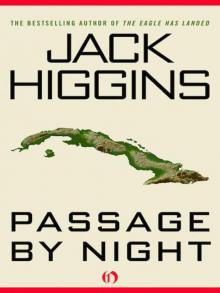 Passage by Night (v5)
Passage by Night (v5)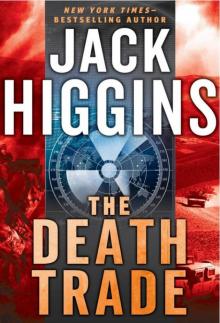 The Death Trade sd-20
The Death Trade sd-20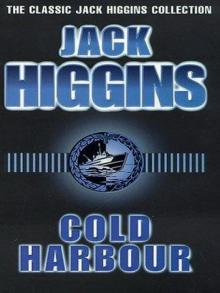 Cold Harbour
Cold Harbour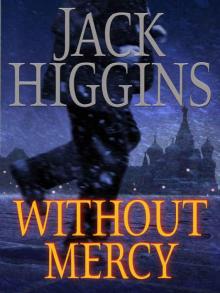 Without Mercy
Without Mercy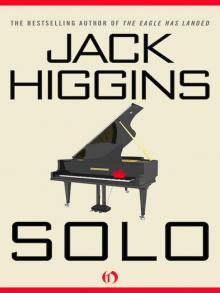 Solo (Aka the Cretan Lover)(1980)
Solo (Aka the Cretan Lover)(1980)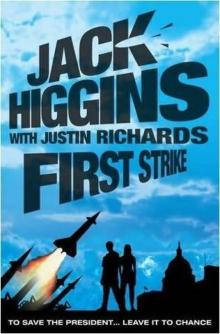 First Strike
First Strike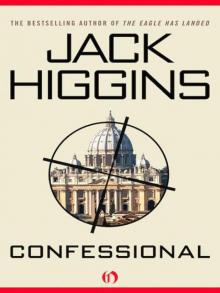 Confessional - Devlin 03 (v5)
Confessional - Devlin 03 (v5)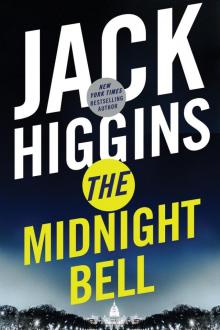 The Midnight Bell
The Midnight Bell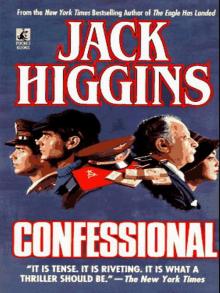 Confessional
Confessional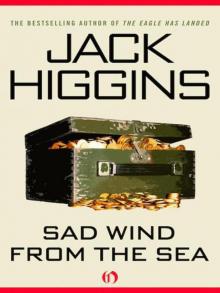 Sad Wind from the Sea (v5)
Sad Wind from the Sea (v5)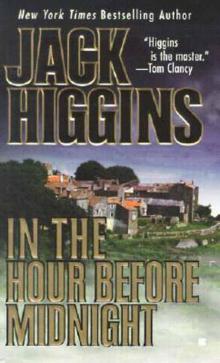 In The Hour Before Midnight aka The Sicilian Heritage
In The Hour Before Midnight aka The Sicilian Heritage Wrath of the Lion
Wrath of the Lion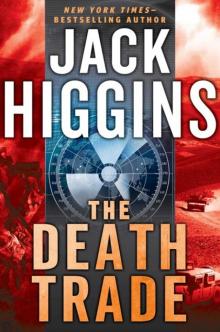 SDillon 20 - The Death Trade
SDillon 20 - The Death Trade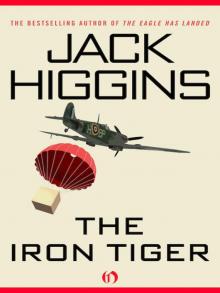 the Iron Tiger (1974)
the Iron Tiger (1974)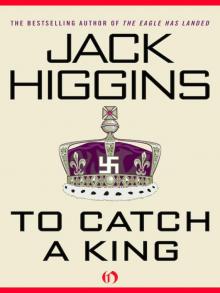 To Catch a King
To Catch a King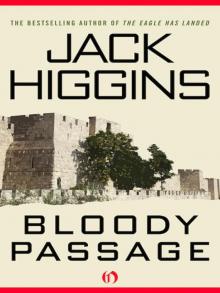 Bloody Passage (1999)
Bloody Passage (1999)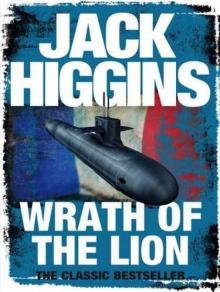 Wrath of the Lion sd-8
Wrath of the Lion sd-8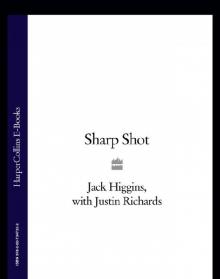 Sharp Shot
Sharp Shot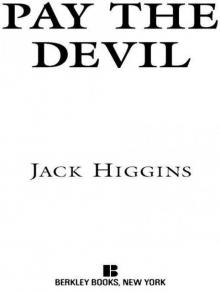 Pay the Devil (v5)
Pay the Devil (v5) A Devil Is Waiting
A Devil Is Waiting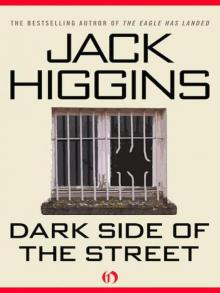 Dark Side of the Street - Simon Vaughn 01 (v5)
Dark Side of the Street - Simon Vaughn 01 (v5)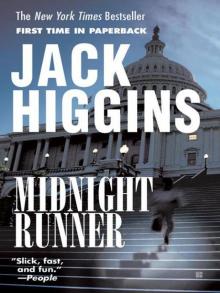 Midnight Runner - Sean Dillon 10
Midnight Runner - Sean Dillon 10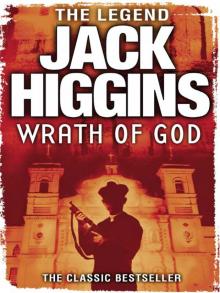 Wrath of God
Wrath of God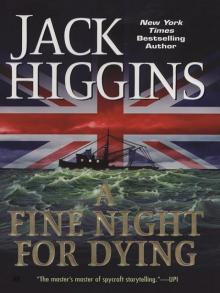 A Fine Night for Dying
A Fine Night for Dying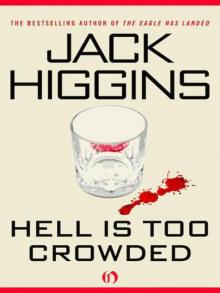 Hell Is Too Crowded v5)
Hell Is Too Crowded v5)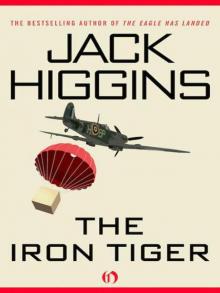 the Iron Tiger (v5)
the Iron Tiger (v5)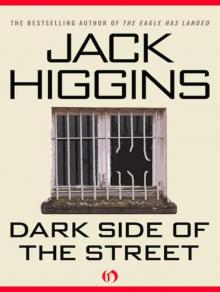 Dark Side of the Street pc-5
Dark Side of the Street pc-5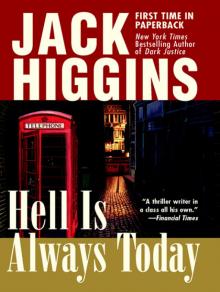 Hell Is Always Today
Hell Is Always Today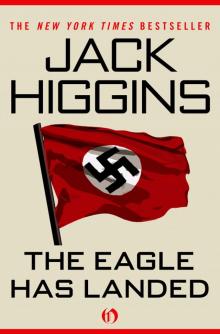 Eagle Has Landed
Eagle Has Landed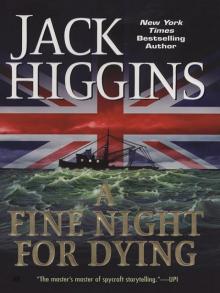 A Fine Night for Dying pc-6
A Fine Night for Dying pc-6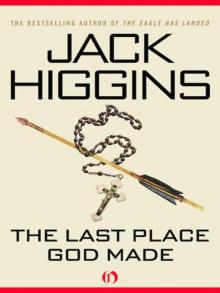 the Last Place God Made (v5)
the Last Place God Made (v5)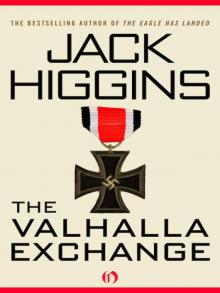 the Valhalla Exchange (1976)
the Valhalla Exchange (1976)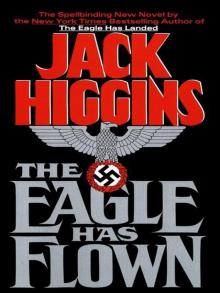 The Eagle Has Flown
The Eagle Has Flown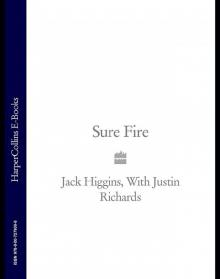 Sure Fire
Sure Fire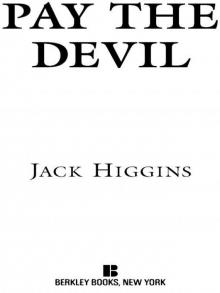 Pay the Devil (1999)
Pay the Devil (1999)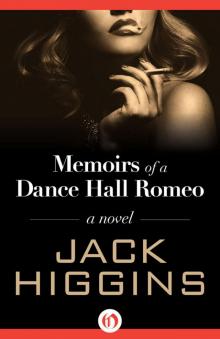 Memoirs of a Dance Hall Romeo
Memoirs of a Dance Hall Romeo![a Prayer for the Dying (1974)[1] Read online](http://i1.bookreadfree.com/i1/04/02/a_prayer_for_the_dying_19741_preview.jpg) a Prayer for the Dying (1974)[1]
a Prayer for the Dying (1974)[1]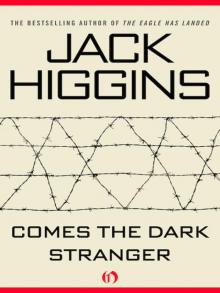 Comes the Dark Stranger
Comes the Dark Stranger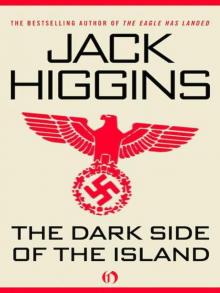 Dark Side Of the Island (v5)
Dark Side Of the Island (v5)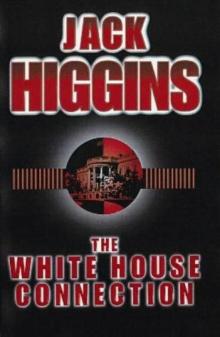 The White House Connection sd-7
The White House Connection sd-7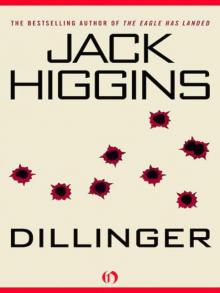 Dillinger (v5)
Dillinger (v5) Eye of the Storm
Eye of the Storm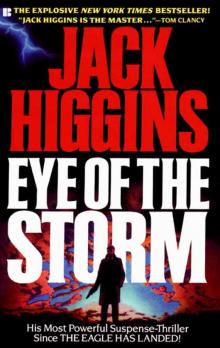 Eye Of The Storm aka Midnight Man
Eye Of The Storm aka Midnight Man A Darker Place
A Darker Place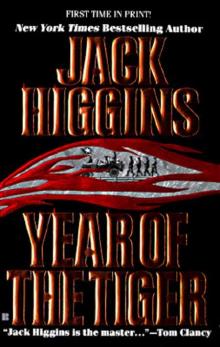 Year Of The Tiger
Year Of The Tiger Death Run
Death Run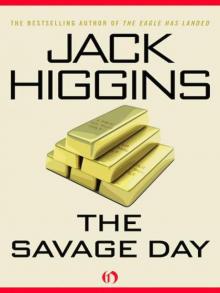 the Savage Day - Simon Vaughn 02 (v5)
the Savage Day - Simon Vaughn 02 (v5)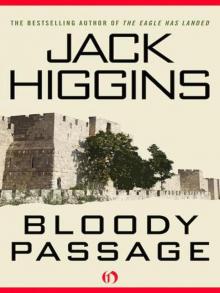 Bloody Passage (v5)
Bloody Passage (v5)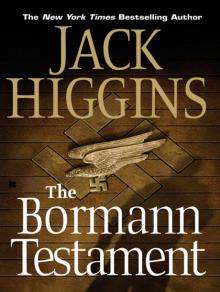 The Bormann Testament
The Bormann Testament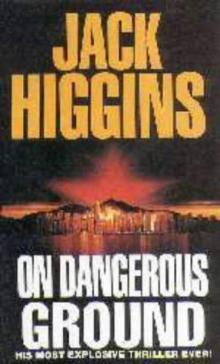 On dangerous ground sd-3
On dangerous ground sd-3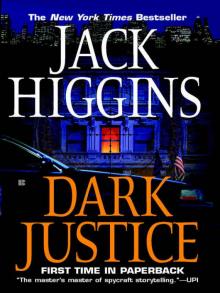 Dark Justice
Dark Justice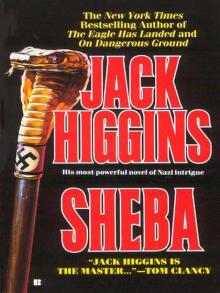 Sheba
Sheba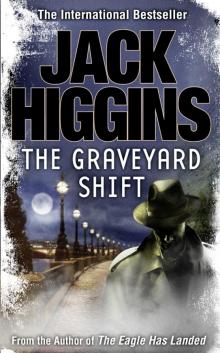 The Graveyard Shift
The Graveyard Shift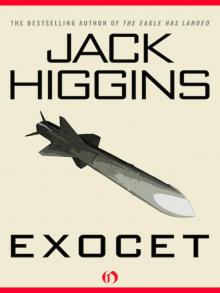 Exocet (1983)
Exocet (1983)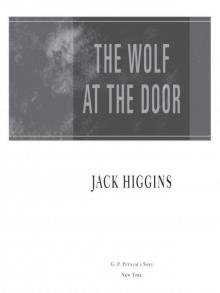 The Wolf at the Door
The Wolf at the Door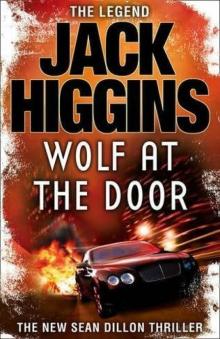 The wolf at the door sd-17
The wolf at the door sd-17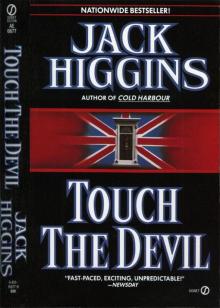 Touch The Devil
Touch The Devil The President’s Daughter
The President’s Daughter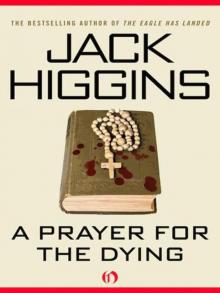 A Prayer for the Dying (v5)
A Prayer for the Dying (v5)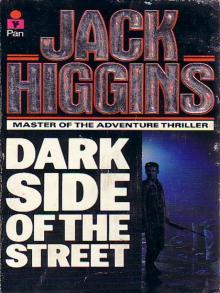 Dark Side Of The Street
Dark Side Of The Street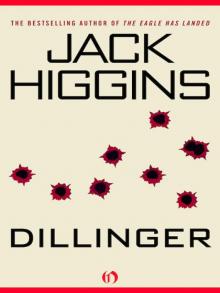 Dillinger (1983)
Dillinger (1983)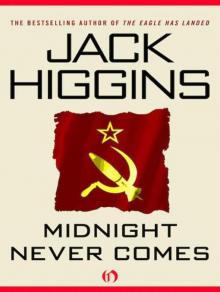 Midnight Never Comes pc-4
Midnight Never Comes pc-4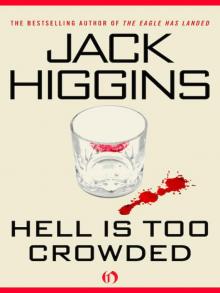 Hell Is Too Crowded (1991)
Hell Is Too Crowded (1991)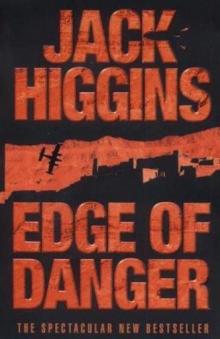 Edge of Danger sd-9
Edge of Danger sd-9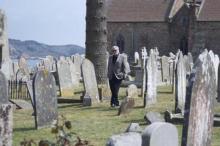 The Thousand Faces of Night (v5)
The Thousand Faces of Night (v5)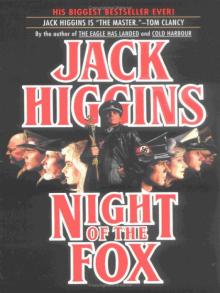 Night Of The Fox
Night Of The Fox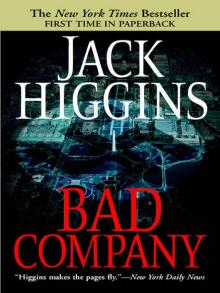 Bad Company
Bad Company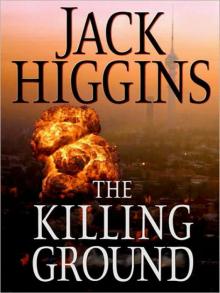 The Killing Ground
The Killing Ground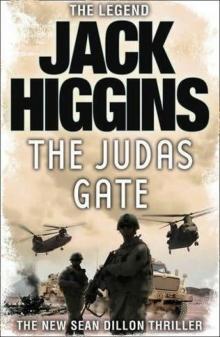 The Judas gate sd-18
The Judas gate sd-18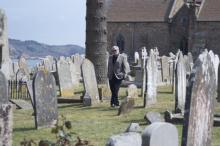 The Thousand Faces of Night (1961)
The Thousand Faces of Night (1961)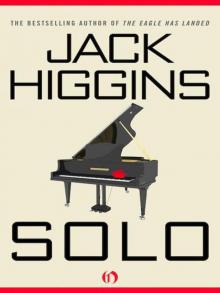 Solo (Aka the Cretan Lover) (v5)
Solo (Aka the Cretan Lover) (v5)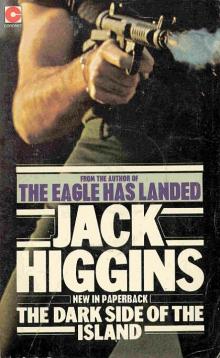 The Dark Side Of The Island
The Dark Side Of The Island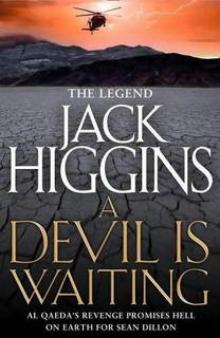 A Devil is vaiting sd-19
A Devil is vaiting sd-19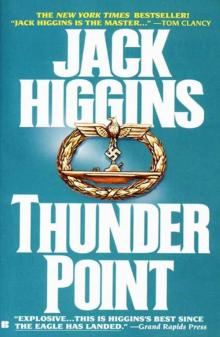 Thunder Point
Thunder Point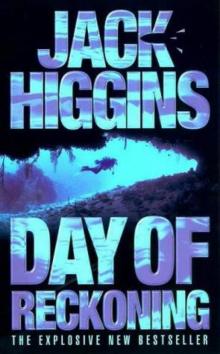 Day of Reckoning sd-8
Day of Reckoning sd-8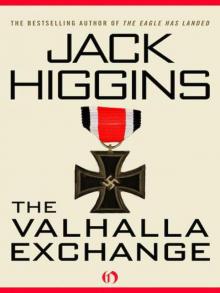 the Valhalla Exchange (v5)
the Valhalla Exchange (v5)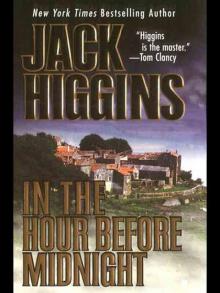 In the Hour Before Midnight
In the Hour Before Midnight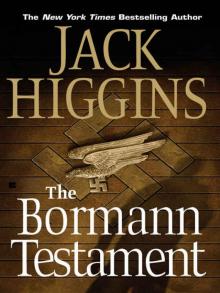 The Bormann Testament (The Testament of Caspar Schultz)
The Bormann Testament (The Testament of Caspar Schultz) The Judas Gate
The Judas Gate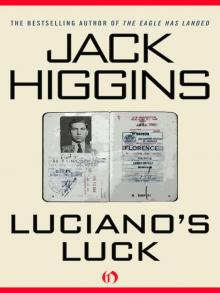 Luciano's Luck
Luciano's Luck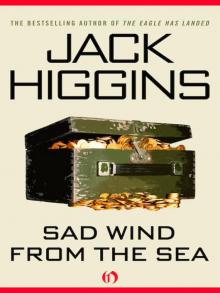 Sad Wind from the Sea (1959)
Sad Wind from the Sea (1959)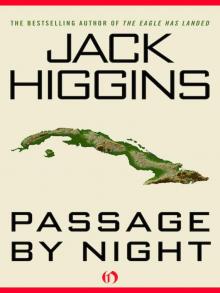 Passage by Night (1987)
Passage by Night (1987)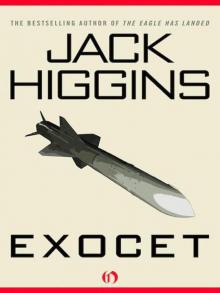 Exocet (v5)
Exocet (v5)